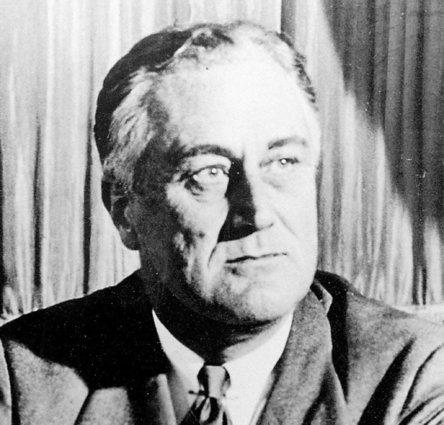August 29, 2016 – Philadelphia Inquirer
What figures in American history do you find the most appealing and why? That’s the first question I’m going to ask my 11th-grade American history students this year. We will share our lists and talk about where and why we overlap, or don’t. Mine will include four people who lived in Philadelphia for some or all of their lives: James Forten, Sarah Grimke, Thomas Paine, and Ben Franklin.
The lists will reveal much about us individually, about our era, and about how our historical views are powerfully shaped by the present. James Forten, an African American Revolutionary War veteran, abolitionist, and business leader, for example, has received much more attention in the 21st century than he did in the 20th.
It occurred to me that the Chinese list might include Eugene Debs, the great American socialist who ran for president five times and received 6 percent of the vote in the election of 1912. By 1922, he was mentioned in a major survey of greatest living Americans. And W.E.B. DuBois, civil rights activist, scholar, and in his later years a communist, whose 91st birthday was celebrated as a national holiday in China in 1959.
I was wrong. How do I know?
Because last spring, a Chinese student in my class analyzed the American history chapters in a few of the textbooks read by millions of Chinese students in their schools. She translated the chapters and showed us that two figures stand out most notably in the Chinese telling: Abraham Lincoln and Franklin Delano Roosevelt. No mention of Debs or DuBois.
In the Chinese textbooks, Lincoln rallied the forces of good (the Union) in a bloody civil war against a relatively small class of Southern planters, rulers of a corrupt and reactionary social and economic system based on slave labor. Roosevelt’s economic reforms and relief programs saved the republic from the greed of the capitalists, whose excesses had caused the Depression and brought the country to its knees.
My student explained that she thought the authors were interested in drawing lessons from the past and in making clear distinctions between what they see as its heroes and villains. Lincoln was a man of the people who raised a citizen army against the martial aristocracy of the Old South and ended slavery. Roosevelt was a charismatic, visionary socialist leader rescuing the country from economic collapse.
The Chinese interest in American history is a reflection of their belief in history’s importance in shaping all people and cultures, including their own. To compete with us in the present, they want to know about our past. And they clearly see our past through the lens of their own history, their great civil war and the communist party led government that emerged from it.
We should keep that in mind as we attempt to negotiate with China on everything from trade relations to climate change to control of the South China Sea.
Americans have the great privilege (and advantage) of hosting international students from around the globe in our high schools, more than 90,000 all told. We should make every effort to maximize the benefits of this extraordinary opportunity to learn from them and about them and their histories and cultures, as they do about ours.


Enjoyed your article in the Inquirer this morning. Are you familiar with the books of Gus Lee? He has written six and all are great. His first was “China Boy” which was on the New York Times best seller list and first published in 1994. His last book “With Schwarzkopf” is a wonderful book about life lessons and leadership. All his books are available on ABEBOOKS.COM for a nominal price and well worth the cost. Both would be good reading for you and your students.
I have not read Gus Lee. I will look him up.
The best book I have read on recent Chinese history is Betty Bao Lord’s book Legacies, a collection of stories about the Cultural Revolution by people who lived through it.
I’m now reading “Chasing Hepburn” by Gus Lee which is his 6th book. I’ve read the previous five. “Chasing Hepburn” is about the history of his family in China from the 1800s up to their escape to America. Gus is one of the best writers I’ve ever read and I have been reading for 70 years. His first book China Boy was first published in 1994 and was on the New York Times best seller list at that time. His book “Honor and Duty” is about his three years at West Point as one of the few Asian cadets and was selected as required reading at USMA.
Interesting thoughts. Have you read “The China Mirage”, and “The Imperial Cruise”? Both by James Bradley who authored “Flags of Our Fathers”, and “Fly Boys”.
I have not read the books you mention. I will put them on my list.
The best piece I have read on recent Chinese history is Legacies by Betty Bao Lord.
Thanks, I’ll place “Legacies” on my list; it’ll be interesting to compare Lord’s book to Bradley’s books. Bradley wrote “The China Mirage” for three reasons – his Father served in WW-2, his Uncle Korea, and his brother Vietnam, all of which, according to his opinion based on his historical research were preventable. In the end hindsight is always 20/20, but if we don’t learn from the past we are…..you know the rest.
Richard Nixon was a genius for taking the initiative to formally recognize China. I travel to China frequently, our western influence is very evident in the big cities, from English signage to brewpubs!
I enjoyed your Inquirer article this morning. I would add Eleanor Roosevelt to the list. She was an effective and selfless contributor to FDR’s success. Given today’s issues such as globalization vs. isolationism and the complexity of our social matters at home, we could use FDR and Eleanor.
If you haven’t read No Ordinary Time by Doris Kearns Goodwin, I recommend it for you and your interested students. It gives a lot of insight into the post-depression and WWII years and how Eleanor and FDR complemented each others strengths. The book also quite candidly gives insights into the daily lives of FDR, Eleanor, and their supporting cast. It’s interesting to note that the rhetoric and personal attacks of today’s presidential race would pale in comparison to what the social media would do with FDR and Eleanor’s private lives.
Another great resource is the recent PBS series on the Roosevelt’s from Teddy through FDR’s terms.
Good luck this year with your teaching. I have grandchildren the ages of your students and I think their generation is the best yet. To paraphrase what someone said, “may you be fortunate to live in interesting times”. The word “challenging” should be added.
I did read No Ordinary Time and very much enjoyed it. Eleanor did great work after FDR’s presidency in her years at the UN.
You’re right about FDR and Eleanor’s private lives. There was a different etiquette when it came to press coverage of such things in those days.
I agree that the kids of this generation are great, though I wish they would read more and watch less.
The headline that they chose for the newspaper (Who makes your list of great Americans, and why?) is disappointing and doesn’t really seem to make much sense given the content of the text, but I don’t think that will matter for folks who bother to read the piece.